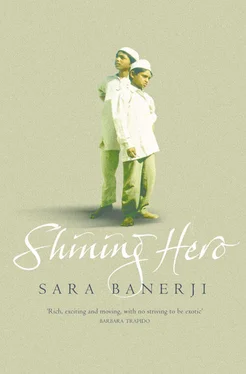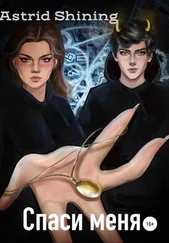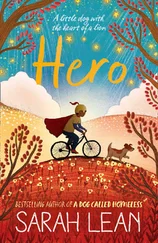‘I would hate to be a widow,’ said Koonty. ‘I would kill myself if my husband died.’ And she touched the gold medallion that Pandu had given her the day before.
‘What a way to talk,’ cried Shivarani. ‘Here are you not even married and you are talking of your husband dying and you killing yourself. And you should not be accepting gifts from your husband-to-be at this time. Especially you should not accept something valuable like that so near to the wedding.’
Koonty crinkled her nose and hastily tucked the symbol of Pandu’s love back into her blouse.
‘Don’t screw up your pretty face like that,’ said Shivarani. ‘I know you are going to look beautiful on your wedding day but all the same you must be careful not to get a wrinkle.’
Koonty laughed. ‘And so will you look beautiful, Didi, because you’ll have to wear nice clothes and jewels for my wedding instead of those ghastly drab old saris.’
Shivarani shook her head and smiled. ‘It wouldn’t matter how I was dressed. Nothing will make me pretty. I will always be ugly.’
Koonty was appalled. ‘But Didi, how can you say such a thing? It’s because you don’t even try. Here. I’ll show you how to do flirting things with your sari. You never know. Some gorgeous man might come to my wedding and fall in love with you.’ Leaping up she demonstrated. ‘Just flip the palu like this, as though by mistake.’
Shivarani did a reluctant tweak.
‘Not like that,’ protested Koonty. ‘You’ve got to do it daintily and at the same time your eyes have to give a quick glance in his direction and then you have to look away.’
Shivarani was away during the months leading up to the wedding, travelling round the villages with her college friend Malti, seeing what could be done to help the villagers.
Villagers would instantly drop what they were doing when the two girls arrived, and stare, fascinated. Strangers were always exciting but the big one with the black face amazed them. Sometimes a whisper would go round among the children. ‘Where are her other arms?’ They thought that Shivarani was the goddess Kali. Malti was a type these villagers had encountered doing charity work at the health clinic or coming to instruct them on birth control. She was normal height, fair-skinned, wore gold earrings and her sari, though simple, was clearly expensive. They had never seen anyone like Shivarani before. It was not only her height and dark complexion. She wore no jewels and her wrists were bare, though even the poorest village woman wore at least a glass bangle. Her hair was short like a man’s and, in fact, although she wore a cheap handloom sari, they could hardly tell if this was man or woman. Perhaps it is a hirja, they whispered to one another. Hirjas were people of indeterminate gender, who wore women’s clothes and had the voices of men. They were frightening people, who appeared at the birth of a baby threatening to curse the child unless they were given payment. Shivarani’s voice was nearly as gruff as a man’s as she boomed out her party’s promises of education, clean water, and food, housing and transport for all.
Meena was horrified, and when she met her eldest daughter would scold, ‘Once more you are stirring up trouble where no trouble was before. You should be at home, in the Hatibari helping with the preparations for your sister’s wedding, not rampaging round the countryside and hobnobbing with all these dirty villagers.’
As the day of her younger sister’s wedding grew closer a letter from her mother persuaded Shivarani to return to Hatipur.
‘Although I have never known you give way to envy, anyone might think you are jealous of your sister now, in her time of joy,’ wrote Meena. ‘The Kaurava family are already commenting on your absence. Please come back at once, Shivarani. The wedding takes place in two weeks and there is much to be done before that.’
Shivarani felt ashamed as she reluctantly made her arrangements to go home. She hoped she would be able to look at her sister, wearing the red sari of the bride, without her feelings showing.
She arrived in the village to find the whole place a buzz of action and expectation. All along the main street, silk, chiffon, gold zaree and shadow appliqué poured from the needles of the squatting darjees’ ancient Singer sewing machines. The air steamed with the breath of garlic, chillies and palm tree jaggery as ingredients for the wedding feast arrived on lorries. The rickshaw wallah, who usually was unable to stand the sight of Shivarani walking, no matter how often she refused him, now trotted past her, his face hidden under banana fronds, his carriage laden with the potted trees purchased from Dattapukur that were to decorate the wedding pandal. He did not even notice the towering, striding figure of Shivarani Gupta in her dusty sari and her hacked-off hair. The pandal itself was arriving too, a lorryload of acres of gaudy cotton stitched with mirrors and fringed with little silver bells and fifteen-foot bamboo poles to form the frame. The great wedding tent, when erected, would tower above the Hatibari, be more brightly coloured than the cinema posters of Dattapukur. It was going to look more realistically like a glittering palace than the most voluptuous set from a Bollywood movie.
As Shivarani passed the Hatibari on her way to her parents’ house, Pandu’s brother’s wife and Boodi Ayah were crouching on the verandah floor, arranging presentations for the bride. Gadhari looked up at Shivarani’s greeting. ‘I hope your sister is going to like these things, though in all the years that I have known her I have never seen her with a handbag once, let alone with fifty-three.’ She told Shivarani bitterly that their task was to artistically arrange a matching set of blouse, petticoat, slippers and handbag onto each of fifty-three plastic trays. ‘With no sides,’ complained Gadhari. ‘And the weather so hot that the sellotape will not stick.’
Shivarani stayed and helped for a while, struggling with the slippery plastic and the unruly silk and leather, while Gadhari muttered things like, ‘They never gave anything like this to me when I was married.’ And ‘What woman can make use of fifty-three pairs of chappals?’ And, ‘Wait till she gets pregnant, then what use will these little blouses be to her? To me it is a perfect waste but Kuru Dadoo has insisted.’
Outside, Gadhari’s sons shouted and laughed as they pedalled new trikes among the rose beds, while from an upstairs balcony their grandfather, Kuru Dadoo, watched them with pleasure. ‘He gave them the trikes yesterday, but he is going to regret it when all his precious rose bushes have been destroyed,’ said Gadhari.
When Shivarani left at last, Kuru Dadoo called out from his balcony, ‘Good afternoon Shivarani, we have a great day to look forward to, have we not? And when are you getting married, my dear girl?’ Shivarani felt her face grow hot as she hurried on.
Meena came running out. ‘At least you are come at last. One would think that the unknown peasant women are more important to you than your own sister. And don’t tell me you walked all the way here from the station.’
‘Where is Koonty? She must be feeling terribly excited. Only a week to go,’ said Shivarani.
‘She’s in her room. Go and see her. She’s been a bit mopey lately.’
Shivarani found Koonty sitting, listless and pasty, on the edge of her bed. The wall was tattered with the remnants of ripped paper, as though the cinema posters had been dragged off wildly. ‘I don’t like the cinema any more,’ said Koonty dully. Her hair was lank as though she had not brushed it. She did not get up. And Shivarani, instead of feeling pleased that her sister had grown out of the frivolous stage and might now be about to take an interest in more serious things, felt worried.
Читать дальше











